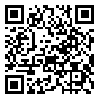BibTeX | RIS | EndNote | Medlars | ProCite | Reference Manager | RefWorks
Send citation to:
URL: http://jpcp.uswr.ac.ir/article-1-288-fa.html
Objective: Self-awareness is the ability to accurately perceive the aspects of our personality, behavior, emotions, and otivations. It is the foundation of all kinds of emotional restraints. Moreover, the feeling of having control over everything is associated with improved mental health. Self-awareness skills are characterized as a set of coping and self-management skills that increase self-efficacy.
Methods: This semi-experimental randomized controlled study was conducted on 80 individuals divided into an intervention and a control group. All 80 subjects were selected from 150 eligible orphaned adolescents under the coverage of Imam Khomeini Relief Foundation. The educational intervention was conducted through five 120-minute sessions. simple random sampling and were divided into two groups using balanced block randomization The data were collected using selfawareness and self-efficacy questionnaires and then were analyzed by SPSS version 19.
Results: The results showed a significant difference between the 2 groups regarding self-efficacy and self-awareness scores before and then 1 and 6 weeks after the intervention (P<0.001). The intervention group’s mean(SD) scores of self-awareness were 27.00(2.97), 34.1(2.09), and 34.55(2.04) in the pretest, first posttest (1 week after the intervention), and second posttest (6 weeks after the intervention), respectively. Also, the intervention group’s mean(SD) scores of self-efficacy were 26.00(19.56), 164.55(19.56), and 173.66(15.84) in the pretest, first posttest, and second posttest, respectively.
Conclusion: The findings of this study showed that self-awareness training directly increased selfawareness skills and self-efficacy. Thus, self-awareness skills training with painting approach is effective in promoting self-awareness and self-efficacy among adolescents.
دریافت: 1394/8/2 | پذیرش: 1394/11/10 | انتشار: 1395/1/13
| بازنشر اطلاعات | |
 |
این مقاله تحت شرایط Creative Commons Attribution-NonCommercial 4.0 International License قابل بازنشر است. |



